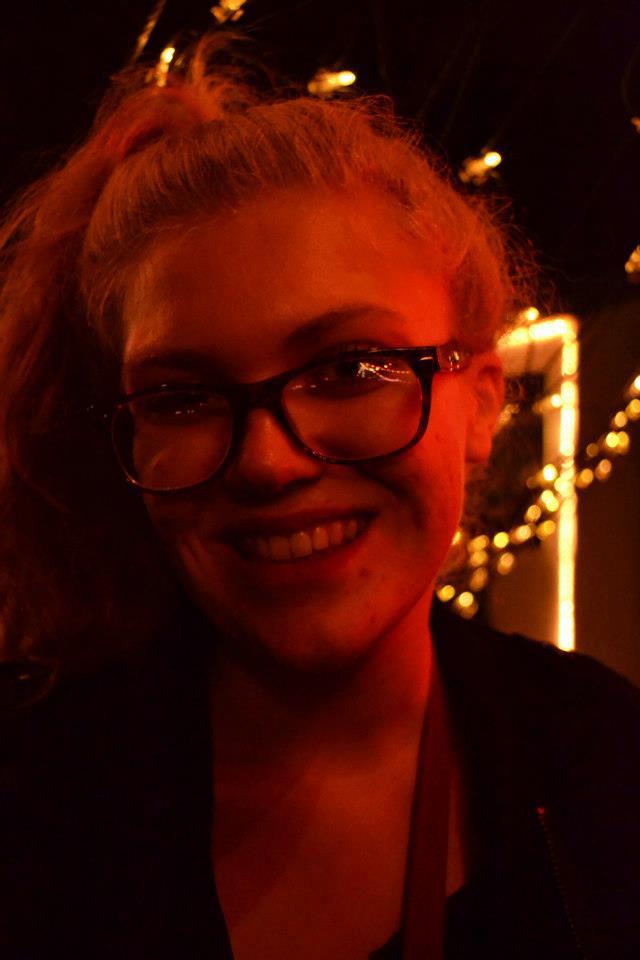 The following post is from Michael Overman. Michael interned with us this year while working towards his Masters of Divinity at Garrett-Evangelical Theological Seminary. You can check out his blog at findingthebalance.net.
The following post is from Michael Overman. Michael interned with us this year while working towards his Masters of Divinity at Garrett-Evangelical Theological Seminary. You can check out his blog at findingthebalance.net.
Growing up, one of my all-time favorite books was The Giver by Lois Lowry. After reading it for the first time in first or second grade, and then later for an undergraduate philosophy course (with several readings between), I fell in love to the point that I make a habit of reading it at least once a year. Short enough to read in a single sitting, I always find myself deeply involved in the storyline, anxiously awaiting the last page, which even to this day is ambiguous enough of an ending that I’m still perplexed. Every year, I gain something new. Every year, I feel refreshed as I enter into the life of Jonas, the main character. While the last time I read it was earlier this year, it came to mind recently (as in just a few minutes ago) while my boss and I were discussing how to have a conversation with someone whose beliefs differ from your own without trying to change or convert them to your way of thinking. I couldn’t help but recall a part of Jonas’ story that always resonated with me…
One of the reasons Jonas was chosen as the “Receiver of Memories” is that he had what was referred to as “the sight.” There was something within Jonas that enabled him to “see beyond.” The clearest manifestation of this ability was in Jonas’ capacity for seeing color… a glimpse here in an apple… a flicker there with Fiona’s hair. He could see something different. It only made sense that as he participated in his training with the Giver, this ability intensified. Colors didn’t just show up in glimpses here and flickers there… they persisted.
The way Jonas viewed the world had changed. Jonas was now different… a word which for him carried a dangerous and painful connotation.
The world of the Giver is a world of sameness. There are no individual birthdays. There is no spectrum of skin tone or hair color. Everyone is born into the world in the same way, given a family in the same way, and dies the same way. So for Jonas, the experience of this difference, especially as his training goes along, is painful. We see this in an encounter with his best friend Ash later in the story. The scene goes like this: it’s a day where the Giver has sent Jonas away early, and so Jonas finds Ash to spend some time with him. During their conversation, Jonas wonders if its possible for Ash to see color. He has Ash look at a bike, an apple, someone’s hair, and while placing his hand on Ash’s shoulder, waits for Ash’s big epiphany.
It never comes…
The disappointment Jonas experiences is almost tangible… you can feel his stomach drop and his heart-break as he realizes that his difference from the one he loves cannot be removed. He cannot make Ash the same as him. He cannot force Ash to think or see in the same way that he does, and it’s tragic… at least for him.
As I was recalling this particular scene, I tried numbering the times where I played Jonas with someone else—where I tried to get someone who I knew saw things differently to see things from my perspective. Even when it was a conversation to someone extremely close to me whom I loved deeply and unconditionally, there were still moments I tried changing them. And when they couldn’t see the apple, the bike, or the hair the same way I did, I ended up walking away feeling hurt, disappointed, dejected, and inadequate.
Being different can be hard. Ask anyone who falls into the category of “minority” and they’ll tell you just what it’s like. Even more difficult is the process of becoming different, of venturing into unfamiliar territory, especially when it has the propensity for isolating one from those to whom they were previously similar. Yet this is a reality of life, so it seems. Life is about progress, growth, and transformation… at least for most of us.
Certain differences are irrefutable and unchangeable, such as gender, race, and even sexuality. These are often differences we cannot fully comprehend, no matter how hard we try. The experience of being white is different from being black, yellow, red, or brown. As much as I may want to understand the experience of being someone who is of a different race or gender, there are certain limits which cannot be breached. Most of the time, I accept this with a level of ease.
When it comes to differences of thought between myself and someone else, accepting the absence of sameness can be more difficult. I almost always want to try to understand the place from which the other person comes, and even more importantly, I want to understand (and agree with) the perspective from which I’m coming. I want them to share my beliefs. I want them to be the “same” as me. And when I cannot make this happen, I usually suffer from some level of despair.
This can happen with matters of faith, politics, interpretation of Scripture, interpersonal relationships, and many other arenas of life. Someone sees the apple in a different way than I do, and I don’t like it. In fact, I almost feel that certain differences prohibit a relationship with someone from existing altogether. While this might at times be true, and even healthy, I do not believe it should be our go-to perception. I think relationships can take place within the context of difference. Correction: I think relationships can thrive within the context of difference.
We often hear the phrase, “Wouldn’t life be boring if everyone was the same?” Yet how often do we see this platitude practiced in everyday life? How often do we see relationships among those whose lives and beliefs are irrefutably dissimilar? My hope, for myself and the world, is that one day, we will see this world of difference in a new way. We will see new value and worth in dissimilarity. We will understand that not converting someone else to our way of living or thinking is alright, and it diminishes neither their inherent worth nor our own. We will no longer understand reconciliation as coercing someone else into “seeing things our way,” but instead view it as a desire for and a decision to be in relationship with the other. Relationship does not mean sameness. Relationship means love in the midst of difference.
Much love.















